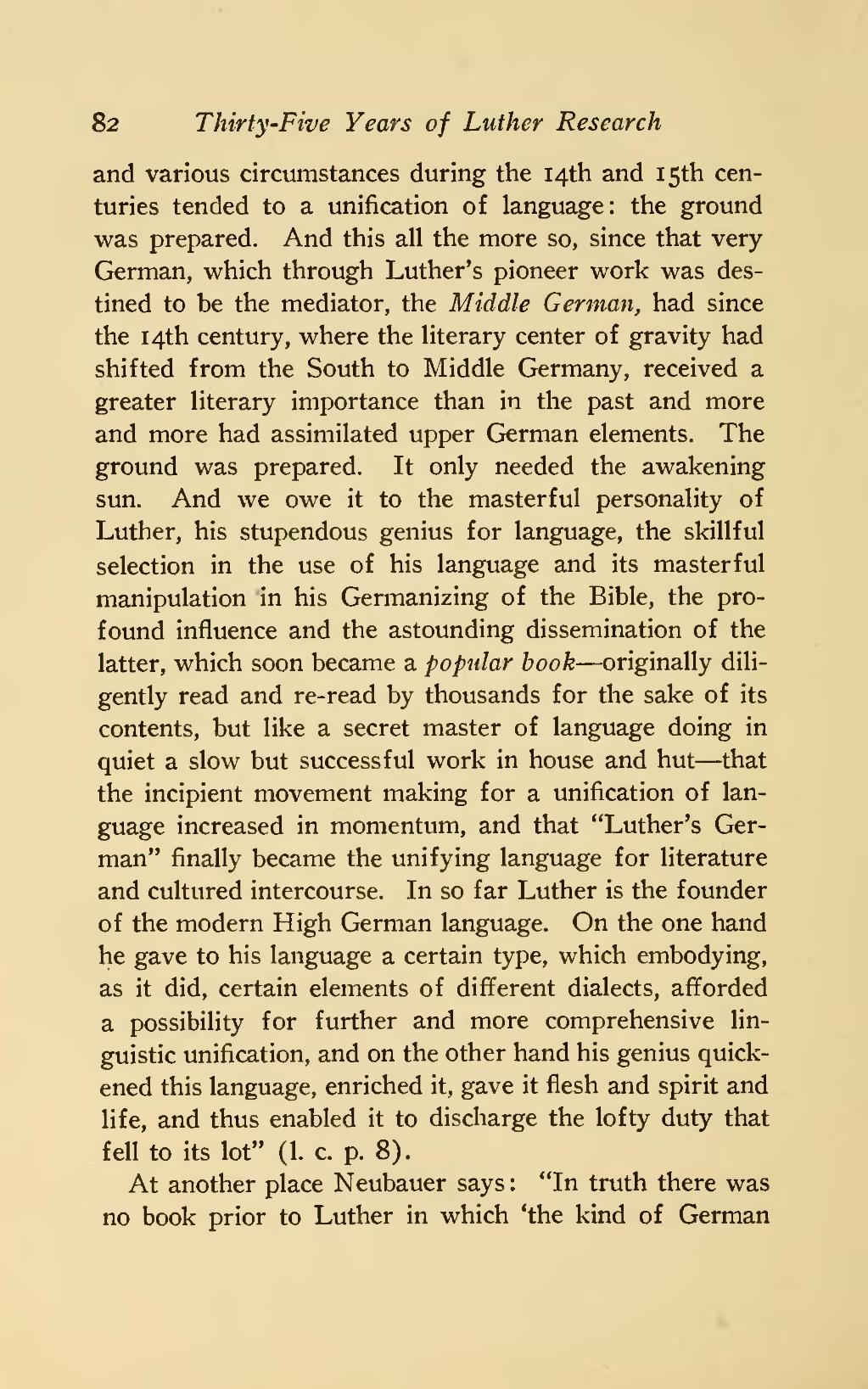and various circumstances during the 14th and 15th centuries tended to a unification of language: the ground was prepared. And this all the more so, since that very German, which through Luther's pioneer work was destined to be the mediator, the Middle German, had since the 14th century, where the literary center of gravity had shifted from the South to Middle Germany, received a greater literary importance than in the past and more and more had assimilated upper German elements. The ground was prepared. It only needed the awakening sun. And we owe it to the masterful personality of Luther, his stupendous genius for language, the skillful selection in the use of his language and its masterful manipulation in his Germanizing of the Bible, the profound influence and the astounding dissemination of the latter, which soon became a popular book — originally diligently read and re-read by thousands for the sake of its contents, but like a secret master of language doing in quiet a slow but successful work in house and hut — that the incipient movement making for a unification of language increased in momentum, and that "Luther's German" finally became the unifying language for literature and cultured intercourse. In so far Luther is the founder of the modern High German language. On the one hand he gave to his language a certain type, which embodying, as it did, certain elements of different dialects, afforded a possibility for further and more comprehensive linguistic unification, and on the other hand his genius quickened this language, enriched it, gave it flesh and spirit and life, and thus enabled it to discharge the lofty duty that fell to its lot" (1. c. p. 8).
At another place Neubauer says: "In truth there was no book prior to Luther in which 'the kind of German
